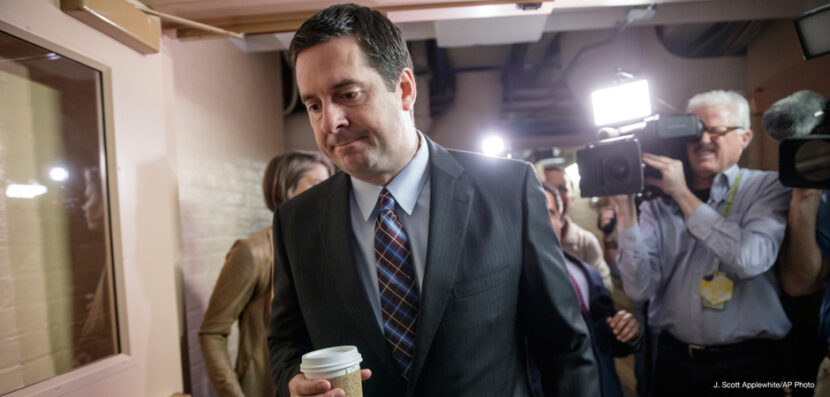
Russia . . . Again?
Russia, and potential Russian involvement in the 2016 election, has been a widespread topic of concern ever since the presidential debates back in October, 2016. As investigations dig deeper into this question, and more and more information is revealed, the issue of Russian involvement–and the U.S. officials who may have participated in it–becomes more complex. Here, we look at two key players in recent events: General Michael Flynn and Representative Devin Nunes.
General Michael Flynn
General Flynn served as President Trump’s National Security Adviser for only three weeks. He resigned because it was discovered that he had not been honest when Vice President Mike Pence asked him about the nature of his contact with Sergey Kislyak, the Russian ambassador to the United States. On the day that President Obama ordered sanctions against Russia as punishment for interfering with the election, Flynn spoke with Kislyak about the sanctions, then lied about this conversation to Pence. When it was revealed that he had lied, Flynn resigned his cabinet post.
Now, more than a month later, Flynn is back in the spotlight–this time because he has agreed to testify about the Trump campaign’s ties to Russia, in exchange for immunity (freedom from prosecution). According to his lawyer, Flynn definitely has a story to tell, but he won’t tell it without legal protection. The response to Flynn’s announcement has been predictably varied. Democrats, who are critical of the Trump administration in general, have seized upon Flynn’s statements as evidence of even greater wrongdoing by Flynn than previously suspected. (They speculate that he does not need legal protections unless he has done something wrong.) Republicans, on the other hand, insist that it is reasonable for Flynn to request immunity. It doesn’t necessarily indicate that Flynn has committed crimes. President Trump has been publicly critical of the media’s attention to the issue as well as the response of Democrats.
The Senate Intelligence Committee, one of the two bodies charged with investigating Russian involvement and the Trump campaign’s role in it, has rejected Flynn’s request. However, Americans on both ends of the political spectrum support the immunity deal, believing that punishing Flynn is less important than hearing what he has to say, and thus hopefully getting to the bottom of the Russia-Trump connection.
Representative Devin Nunes
The other body responsible for investigating the Russia-Trump connection is the House Intelligence Committee. Devin Nunes is the chairman of this committee. Last week, Nunes found himself at the center of scandal when, on the night of March 21, he received intelligence reports from an unnamed “source” that informed him that Trump and his associates were caught up in incidental surveillance by American spy agencies. (Incidental surveillance means that while the Trump campaign was not directly spied on, they might have been accidentally spied on while U.S. intelligence was attempting to spy on others.) President Trump said that this supported his claim in early March that he was “wiretapped” by President Obama during the campaign.
Related Link: Click here to read a btw Stuff YOU Should Know post from March that provides some further detail on the wiretapping claims made by President Trump.
Representative Nunes immediately took the information he had learned to the White House, rather than reporting it to the House Intelligence Committee–like he was supposed to. This is troubling, because Nunes is supposed to be independently investigating the Trump administration, not reporting back to it. Nunes insists that he only did this because the information he received had nothing to do with Russia.
However, it has since been revealed that the “information” Nunes received from his so-called unnamed sources actually came from two White House officials. In other words, Nunes is receiving information from, and reporting back to, the very people he is supposed to be investigating. This makes it very difficult for many Americans to believe that Nunes can lead an investigation of Trump in a fair and impartial way.


